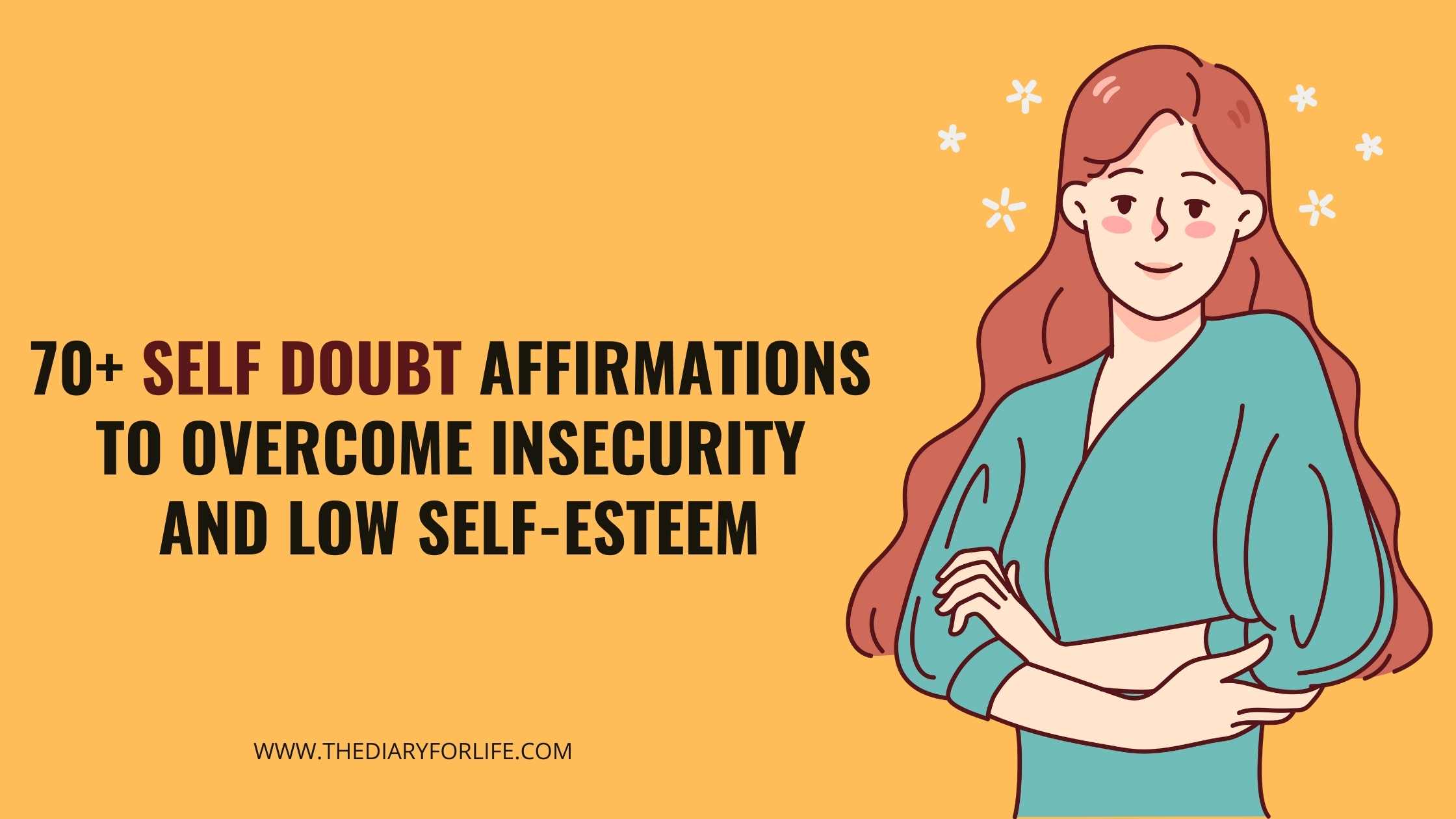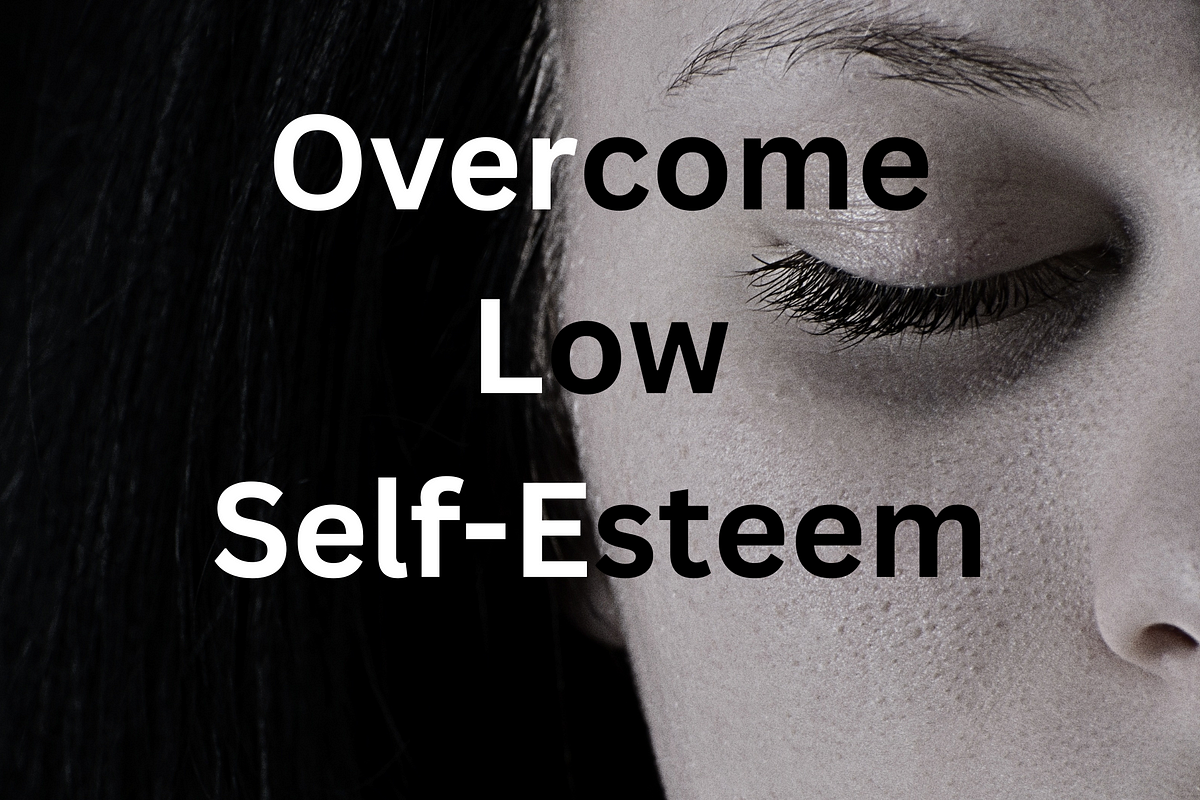How To Overcome Low Self-esteem And Insecurities

In a world saturated with curated online personas and relentless societal pressures, the insidious creep of low self-esteem and insecurity can feel inescapable. From impacting personal relationships to hindering professional growth, these internal struggles can cast a long shadow on an individual's potential. But while the battle against self-doubt may seem daunting, experts emphasize that overcoming these challenges is not only possible, but crucial for living a fulfilling and authentic life.
This article explores evidence-based strategies and expert insights to help individuals navigate the complex terrain of self-esteem and insecurity. It offers practical tools and perspectives for cultivating self-compassion, challenging negative thought patterns, and building a stronger sense of self-worth.
Understanding the Roots of Low Self-Esteem
Low self-esteem often stems from a complex interplay of factors, including childhood experiences, social conditioning, and negative life events. According to the American Psychological Association, early experiences of criticism, neglect, or abuse can significantly impact a child's developing sense of self.
Dr. Sarah Chen, a clinical psychologist specializing in self-esteem, explains, "The messages we receive during our formative years, both explicit and implicit, shape our core beliefs about ourselves. If those messages are predominantly negative, they can create a deep-seated sense of unworthiness."
Furthermore, societal pressures, particularly those perpetuated through media and social media, can exacerbate feelings of inadequacy. The constant exposure to idealized images and unrealistic standards of success can fuel comparisons and self-doubt, leading to a distorted perception of one's own value.
Challenging Negative Thought Patterns
One of the most effective strategies for combating low self-esteem is to identify and challenge negative thought patterns. Cognitive Behavioral Therapy (CBT) techniques, often recommended by therapists, provide a framework for recognizing and modifying these destructive thought processes.
Beck Institute for Cognitive Behavior Therapy emphasizes the importance of recognizing cognitive distortions, such as all-or-nothing thinking, overgeneralization, and catastrophizing. These distortions can lead to inaccurate and overly negative interpretations of events, further fueling feelings of inadequacy.
The process involves questioning the validity of these thoughts, examining the evidence for and against them, and reframing them in a more balanced and realistic way. By actively challenging negative self-talk, individuals can begin to dismantle the underlying beliefs that contribute to low self-esteem.
Cultivating Self-Compassion
Self-compassion, the practice of treating oneself with kindness and understanding during times of difficulty, is a powerful antidote to self-criticism. Dr. Kristin Neff, a leading researcher in self-compassion, defines it as having three main components: self-kindness, common humanity, and mindfulness.
Instead of berating oneself for perceived failures or imperfections, self-compassion encourages individuals to acknowledge their struggles with kindness and understanding. Recognizing that suffering is a universal human experience – the concept of common humanity – helps to reduce feelings of isolation and shame.
Practicing mindfulness allows individuals to observe their thoughts and emotions without judgment, creating a space for self-acceptance and understanding. Techniques like meditation and mindful breathing can help cultivate self-compassion and build resilience in the face of adversity.
Building a Supportive Network
Social support plays a crucial role in fostering self-esteem and resilience. Surrounding oneself with positive and supportive individuals can provide a buffer against negative self-perceptions and offer encouragement during challenging times.
Research from the University of Michigan highlights the link between strong social connections and improved mental well-being. Meaningful relationships provide a sense of belonging, validation, and acceptance, all of which contribute to a healthier self-image.
Seeking therapy or joining support groups can also provide a safe and structured environment for exploring self-esteem issues and connecting with others who share similar experiences. The National Alliance on Mental Illness (NAMI) offers resources and support groups for individuals struggling with mental health challenges, including low self-esteem and insecurity.
Embracing Imperfection and Practicing Self-Acceptance
Ultimately, overcoming low self-esteem requires embracing imperfection and practicing self-acceptance. This involves recognizing that everyone makes mistakes and that striving for perfection is an unrealistic and often self-defeating goal.
Instead of focusing on perceived flaws and shortcomings, individuals can shift their attention to their strengths and accomplishments. Celebrating successes, no matter how small, can help build confidence and reinforce a positive self-image.
Dr. Brené Brown, a renowned researcher on vulnerability and shame, emphasizes the importance of cultivating self-worth by embracing authenticity and vulnerability. Authenticity requires being true to oneself, even in the face of judgment and criticism, while vulnerability involves allowing oneself to be seen and known by others, imperfections and all.
Looking Ahead: A Journey of Self-Discovery
Overcoming low self-esteem and insecurity is not a quick fix but rather an ongoing journey of self-discovery and growth. By incorporating the strategies outlined above, individuals can begin to dismantle negative self-perceptions, cultivate self-compassion, and build a stronger sense of self-worth. It's vital to remember that seeking professional help is a sign of strength, not weakness, and can provide invaluable support in navigating these challenges.
As individuals embark on this journey, they will come to understand that true self-esteem is not about external validation but about internal acceptance. It is about recognizing one's inherent worth, embracing one's imperfections, and living a life guided by authenticity and self-compassion.


















